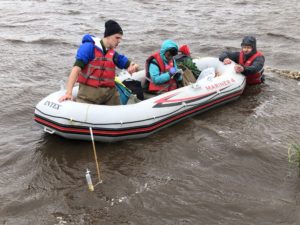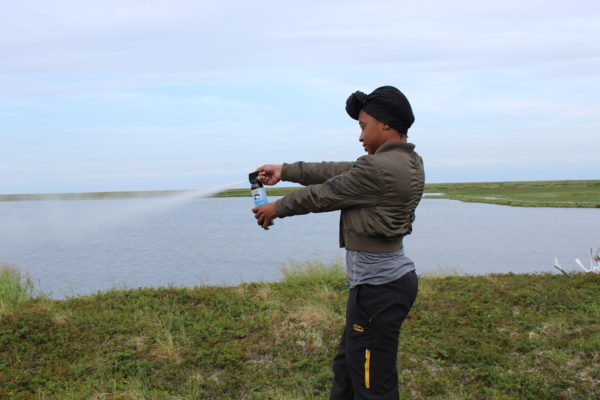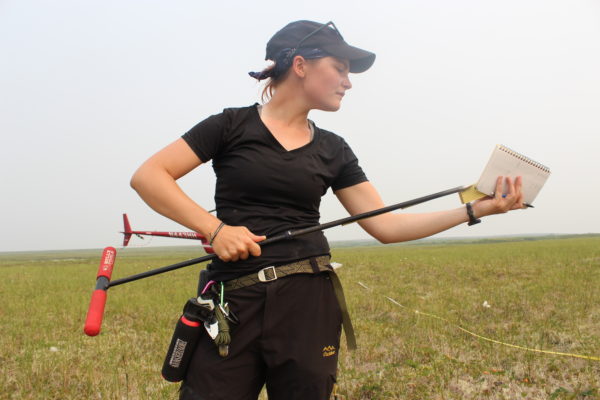 For most of my peers and I, leaving for Alaska is a large change from our everyday norm. In fact, for many of us, it is our first time in this part of the world. Since arriving in Anchorage on June 25th, I have gained a much more intimate knowledge about this place than I ever thought imaginable.
For most of my peers and I, leaving for Alaska is a large change from our everyday norm. In fact, for many of us, it is our first time in this part of the world. Since arriving in Anchorage on June 25th, I have gained a much more intimate knowledge about this place than I ever thought imaginable.
While at first glance the tundra ecosystem might look like a flat grassland landscape, as I jumped down from my first float plane ride in waders and took my first steps upon the spongy tundra, I couldn’t help but notice how biologically diverse it is. I feel like we are walking upon a miniature rainforest. Just seeing this place for the first time provoked lots of questions. Camping on site in order to do field-based research has allowed me and my peers to make deep connections with this spectacular place.
For me, the reverence of this place didn’t start upon landing in the tundra, but instead at our meeting in Bethel, Alaska with some Alaska Native community members. From our conversation, I could easily see how integral this place is to their identity. I am grateful that my mentors at WHRC provided the opportunity for undergraduates like myself to do more than extractive research and make strides towards becoming an ethical scientist. This meeting further opened my eyes to the frequent disconnect between visiting researchers and indigenous communities. I feel truly privileged to be acting as a visiting scientist in their home, and I hope to be able to include them in my audience while communicating future research.
Since setting out from basecamp on foot for the first time, a lot has changed for me. While preparing for this spectacular expedition to the Arctic, I thought that I wanted to study the movement of carbon after permafrost thaw within different hydrological environments. However, on our first day, after setting up my tent with my “roommate” Mike, we set off on an initial exploratory walk. I decided to scrap my initial plans in order to answer questions that I find even more interesting.
Our campsite is located upon a peninsula jutting out into what we call Landing Lake. However, upon the banks of this outcrop, there are cracks within the ground where the Earth is slumping towards the water. This is a process called thermokarst and happens as the thaw of permafrost destabilizes the ground. After seeing the gashes caused by this process, I wanted to know whether the sediments beneath these slumped regions are more rich in organic matter and are producing more methane gas. Thankfully, my research mentors were open to the idea and encouraged me to study what we find most interesting.
This is another totally new experience for me. While I have conducted research in the past, this is the first time I have been in charge of the research question. In some regards, having to clearly articulate your question and design a method to test it in the field is more difficult. However, this is also the first time I have felt like a real scientist instead of just a student playing the part.
My peers and I are exploring several aspects of this beautiful place from its ecology to chemical cycling through this unique and fragile ecosystem. I am thrilled to be here and look forward to the next nine days in the field. But for now, I have to head off to my first helicopter ride.
— Henry Henson is a student at St. Olaf College



